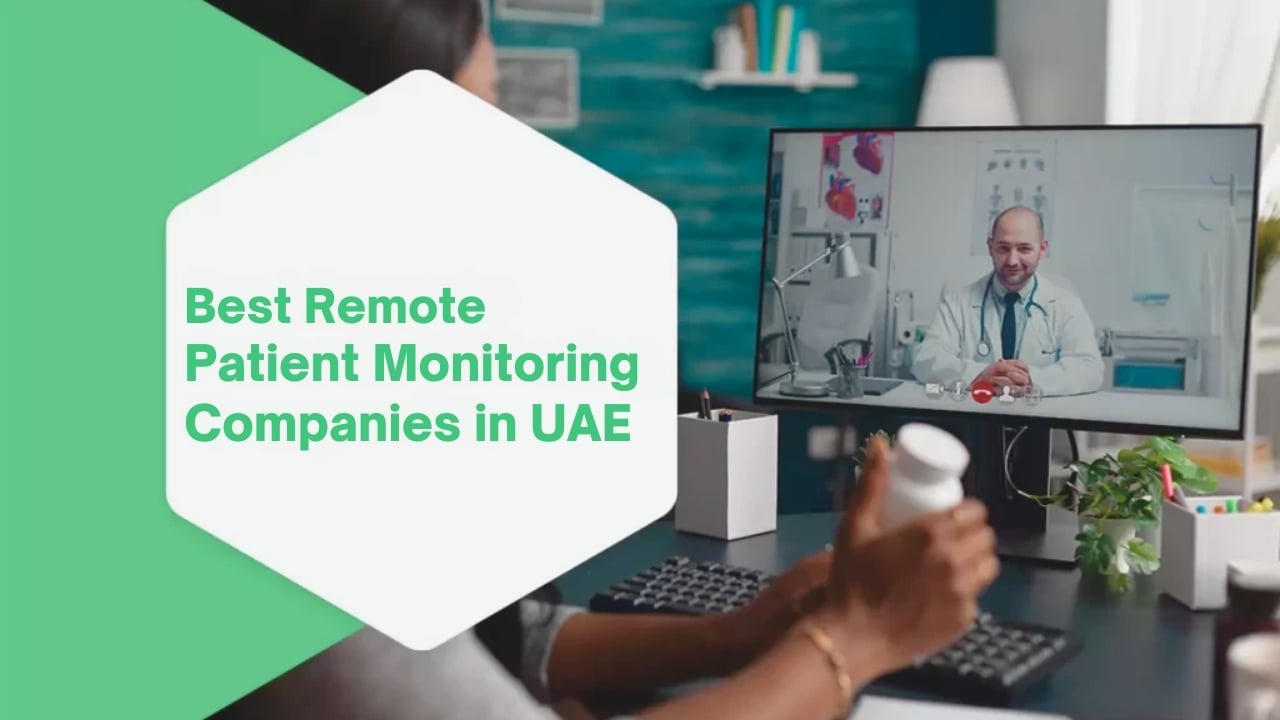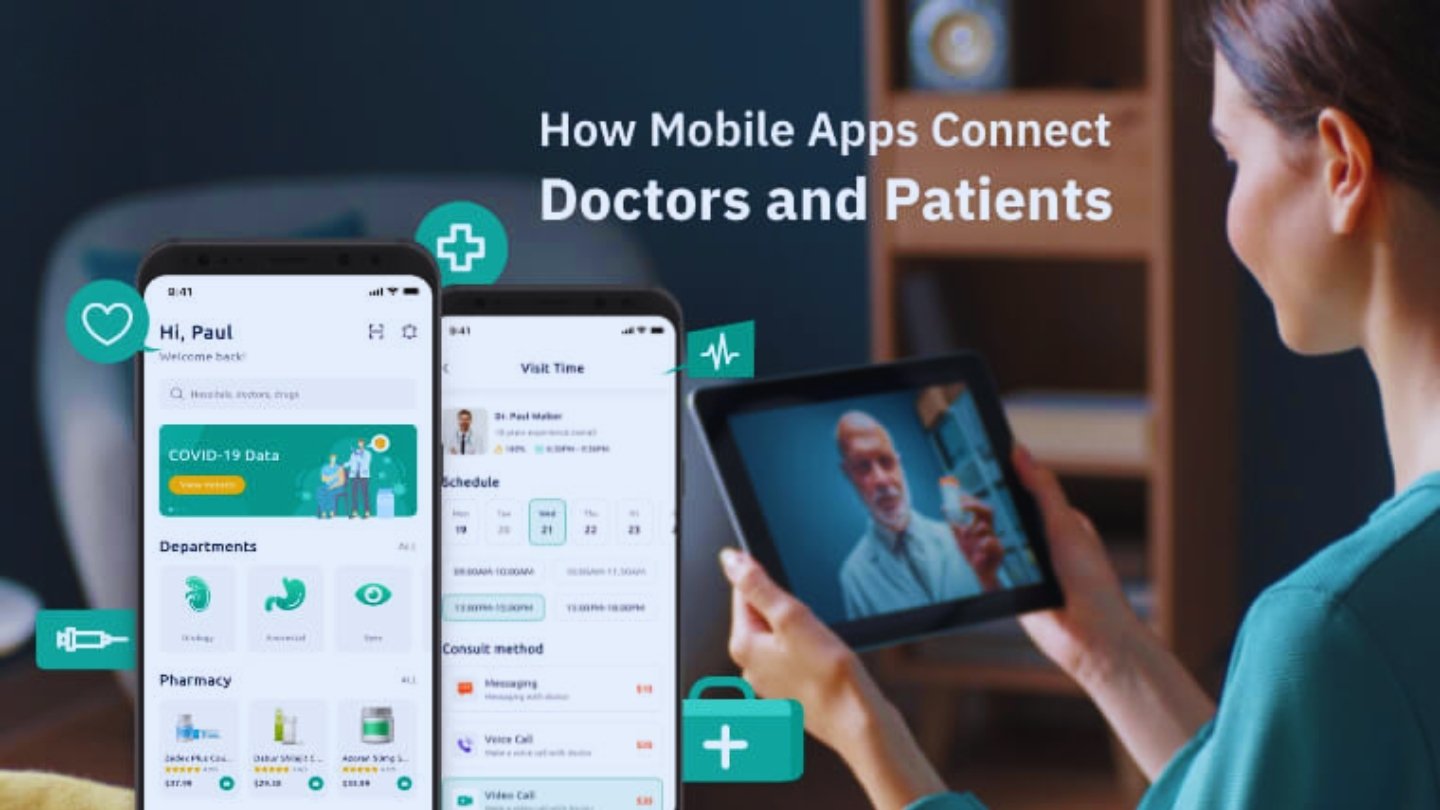
What Doctors and Patients Want in a Healthcare Mobile App in Riyadh: 2025 ?

In 2025, Riyadh's healthcare landscape is undergoing a transformative shift—fueled by rapid technological advancements and Vision 2030’s focus on digital health. At the heart of this change lies the growing demand for powerful healthcare mobile apps that cater to the specific needs of both patients and doctors.
According to the Saudi Ministry of Health, over 70% of patients now prefer mobile-based consultations, and doctors in Riyadh report a 40% increase in clinical efficiency using digital tools. This isn't just about convenience—it's about creating smarter, more accessible healthcare through the right healthcare software.
So, what exactly do users—both patients and healthcare professionals—expect from a modern healthcare mobile app in Riyadh? Whether you are a healthcare company, a clinic owner, or a hospital administrator, understanding these expectations is crucial for success.
This article will uncover the essential features, preferences, and expectations from the lens of 2025 healthcare consumers in Riyadh, drawing from E-E-A-T principles (Experience, Expertise, Authority, and Trust), real-world insights, and the latest trends.
Why Understanding User Needs is Crucial for a Successful Healthcare Mobile App
In the crowded digital health market of Riyadh, building a generic app simply doesn’t cut it anymore. Patients and doctors demand personalization, accuracy, and security—and overlooking their needs can result in low app retention, bad reviews, or worse, non-compliance with healthcare regulations.
A healthcare mobile app that fails to deliver on expectations not only loses users but may also put patient safety and clinical outcomes at risk. Therefore, identifying what truly matters to end-users is not just beneficial—it's essential for any healthcare mobile app development company looking to make a real impact in Saudi Arabia’s capital.
The Growing Role of Healthcare Mobile Apps in Riyadh
Riyadh, as the hub of Saudi Arabia’s healthcare modernization, has witnessed a surge in mobile health adoption. According to a report by Statista, mobile health app usage in the MENA region is projected to grow by 25% annually, with Riyadh leading the way.
This boom is driven by several factors:
- Government support under Vision 2030 for digital healthcare
- Increased smartphone penetration in urban populations
- Growing awareness of preventive health and wellness tracking
- Shortage of in-person specialists, especially in remote regions
Modern healthcare software and apps developed by experienced healthcare mobile app development companies offer a direct response to these needs—bridging gaps, boosting efficiency, and enhancing care delivery.
Real-Time Appointment Scheduling & Doctor Availability
One of the most sought-after features for both patients and doctors is real-time appointment scheduling. In a busy city like Riyadh, where time is precious, users demand a seamless way to check doctor availability and book appointments instantly.
Patients expect:
- User-friendly calendar interface
- Notifications and reminders
- Option to choose specialists by rating, gender, language
Doctors need:
- Instant schedule updates
- Block-out unavailable slots
- Manage walk-ins and emergencies via the app
This feature eliminates the need for long wait times and endless phone calls, making the entire booking process efficient and hassle-free.
Secure Video Consultation & Telemedicine Support
The pandemic accelerated the demand for telemedicine, and Riyadh has embraced it fully. Now, it's an expected feature in every top-tier healthcare mobile app.
Patients prefer:
- High-definition, secure video calls
- Virtual waiting rooms
- Session summaries or prescriptions post-consultation
Doctors look for:
- Adjustable camera angles, file sharing
- Real-time patient chart access during calls
- Ability to handle multiple sessions securely
A reputable healthcare mobile app development company should ensure these features are built using encrypted, HIPAA-compliant technology to protect sensitive medical data.
Easy Access to Electronic Medical Records (EMR)
Access to personal health records is a fundamental right, and healthcare apps in 2025 must deliver this experience seamlessly.
Patients need:
- Lab results, imaging scans, prescriptions all in one place
- Access history of consultations and diagnoses
- Integration with fitness devices for a holistic view
Doctors require:
- Instant patient history during consultations
- View treatment plans and test orders
- Collaborative tools to connect with other specialists
This interoperability between the EMR and the app elevates patient care and improves clinical decisions—especially in complex cases.
Prescription Management & E-Pharmacy Integration
Ordering medicines in Riyadh is now just a tap away, thanks to robust pharmacy integrations in modern healthcare software.
Patients want:
- Automatic e-prescription post-consultation
- Integration with local pharmacies for doorstep delivery
- Alerts for medication schedule and refills
Doctors expect:
- Templates for common prescriptions
- Smart suggestions for generic drug alternatives
- Real-time pharmacy inventory sync
E-pharmacy features also enhance medication adherence, which is a major challenge for chronic disease patients in Saudi Arabia.
Multilingual Support (Arabic + English)
Riyadh’s healthcare ecosystem is diverse—with both local and expat populations. As a result, multilingual functionality is no longer optional.
Patients desire:
- Complete app experience in Arabic and English
- Culturally relevant terminology and tone
- Voice and text input support for non-native users
Healthcare companies that invest in localization demonstrate cultural sensitivity—helping them stand out in a competitive market.
Health Tracking & Remote Monitoring Tools
With the rise in chronic illnesses like diabetes and hypertension in Riyadh, patients and doctors want apps that go beyond appointments—offering daily health tracking.
Patients use features like:
- Blood pressure, glucose, oxygen level input
- Wearable sync for real-time monitoring
- Graphs and trends of their vitals
Doctors benefit from:
- Remote alerts if patient vitals are abnormal
- Pre-visit data review for better diagnostics
- Longitudinal health insights to improve care plans
Such features are critical for elderly care, post-surgery recovery, and chronic disease management.
In-App Chat & 24/7 Support
A robust in-app messaging system gives users the flexibility to connect with doctors or support staff without needing a call.
Patients expect:
- Ask questions post-consultation
- Chatbots for common queries
- Send documents, photos, or test reports
Doctors want:
- Set limits or availability for chats
- Prioritize urgent messages
- Integration with clinical notes
Combined with AI-driven chat assistants, this improves the app’s responsiveness and reduces administrative burden.
Data Privacy and Regulatory Compliance
With rising concerns over data breaches, Riyadh’s patients and healthcare providers emphasize data security and compliance more than ever.
Key compliance needs in Saudi Arabia:
- Saudi Health Data Law
- HIPAA (for international compatibility)
- ISO 27001 and GDPR (for global standards)
What a trustworthy healthcare company must do:
- End-to-end encryption
- Biometric login and 2FA
- Regular vulnerability audits
Apps without strong security protocols simply won't gain user trust or regulatory approval.
Integration with Wearables and IoT Devices
Today’s healthcare is more proactive than reactive. Users are investing in wearable technology to manage their health on the go.
Patients expect:
- Fitbit, Apple Watch, or Samsung Gear integration
- Real-time sync with app dashboard
- Suggestions based on activity/sleep/heart rate
Doctors appreciate:
- A consolidated dashboard of wearable data
- Insights into patient lifestyle between visits
- Use data to personalize care plans
This feature is especially beneficial for fitness-driven users or patients recovering from cardiac surgeries or sleep disorders.
Custom Dashboard & User Experience
An intuitive dashboard is the first impression—and a lasting one. The best healthcare mobile app should cater to different users with smart, customizable interfaces.
Patients prefer:
- Quick links to reports, appointments, prescriptions
- Visual charts and friendly color schemes
- Dark mode, voice accessibility
Doctors want:
- Custom tiles for patient notifications
- Task list, schedule, and clinical tools in one view
- Keyboard-friendly UI for tablet use in hospitals
Good UX can reduce the learning curve and boost long-term usage.
Cost Transparency & Digital Payments
One of the biggest barriers to patient trust is unclear pricing. The best healthcare mobile apps now offer full transparency in billing and digital payment capabilities.
Patients look for:
- Consultation charges visible before booking
- Insurance card uploads
- Secure payment gateways (Apple Pay, Mada, STC Pay)
Providers expect:
- Auto-invoice generation
- Refund and cancellation workflows
- Reconciliation tools integrated with finance software
Transparency not only improves satisfaction but also ensures smoother operations.
Ratings, Reviews, and Feedback Collection
Social proof plays a major role in patient decision-making. Riyadh’s population—particularly younger generations—relies on ratings and reviews before choosing a doctor or facility.
Patients want to:
- Read verified reviews
- Filter by specialty, gender, or rating
- Share their feedback post-consultation
Doctors and hospitals:
- Use feedback to improve services
- Respond to patient reviews professionally
- Identify areas for quality improvement
Built-in NPS (Net Promoter Score) tools can help healthcare organizations measure patient satisfaction in real-time.
Comparison Table: What Doctors vs. Patients Expect in a Healthcare App
|
Feature |
Patients Expect |
Doctors Need |
|
Appointment Booking |
Easy UI, Reminders |
Real-time sync, No overlaps |
|
Video Consultation |
Secure, HD quality, Post-notes |
File share, EHR access |
|
EMR Access |
All records in one app |
History view, lab results integration |
|
E-Prescription & Pharmacy |
Auto-orders, delivery |
Templates, pharmacy sync |
|
Health Monitoring |
Sync wearables, alerts |
Vital tracking dashboard |
|
Multi-language Support |
Arabic/English |
Clinical terms in preferred language |
|
In-App Chat |
Ask questions, chatbot |
Manage messages, smart triage |
|
Secure Login |
Face ID, Password protection |
Admin-level roles and access levels |
|
Payment & Billing |
Transparent pricing, easy pay |
Auto-invoice, insurance data |
Final Thoughts: Partnering with the Right Healthcare Mobile App Development Company
Riyadh’s healthcare future is digital—and mobile apps are the gateway to smarter, faster, and more patient-centric care. But simply building an app isn’t enough.
To truly deliver what doctors and patients want, healthcare organizations must partner with a healthcare mobile app development company that understands:
✅ User experience design
✅ Compliance and data privacy
✅ Technical scalability
✅ Arabic-English localization
✅ Integration with existing healthcare software
Choosing the right healthcare company not only ensures a successful product but also positions your brand as a leader in Riyadh’s growing digital health ecosystem.
Explore More :- Top 5 Healthcare Software Development Companies in Riyadh You Should Know in 2025?
Ready to build a future-proof healthcare mobile app in Riyadh?
Choose a trusted healthcare mobile app development company - SISGAIN is a leading healthcare mobile app development company, delivering innovative, secure, and scalable solutions tailored to modern medical needs.
Get A Free Demo Now :- https://sisgain.ae/healthcare
Contact Information
Email :- hello@sisgain.ae
Phone No :- +971-56-848-5757
HeadQuarter :- DUQE FREEZONE Quarter Deck, Queen Elizabeth 2, Mina Rashid, Dubai, UAE

.jpg?width=1280&height=720&name=Untitled%20design%20(6).jpg)